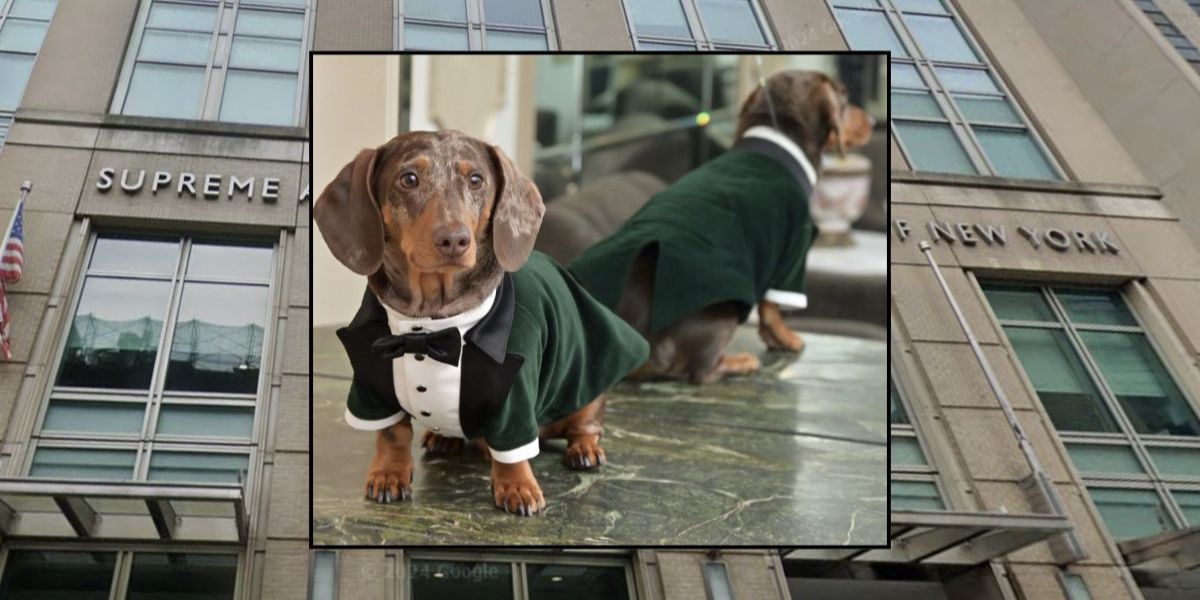A New York judge has made a groundbreaking ruling, stating that dogs can be considered part of a person’s “immediate family” in legal matters, allowing their owners to seek emotional damages if they witness their pet being harmed.
The ruling came Tuesday from Judge Aaron Maslow of the Kings Supreme Court in Brooklyn in a lawsuit involving the death of a 4-year-old dachshund named Duke. The dog was fatally struck by a car nearly two years ago while being walked on a leash by 66-year-old Nan DeBlase, the mother of Duke’s adopter, Trevor DeBlase.
According to court documents, the incident occurred on July 4, 2023, when a speeding car driven by Mitchell Hill ran a stop sign and made an illegal turn onto the street where Nan DeBlase was walking Duke. Surveillance footage captured the moment Hill’s vehicle nearly hit Nan, forcing her to jump out of the way. Tragically, Duke was struck and killed.
“It was extremely traumatic. I was hysterical when it happened,” Nan DeBlase recalled in an interview with the New York Post.
The DeBlases sued Hill for negligent driving, endangering Nan DeBlase, and inflicting emotional distress. Hill’s legal team argued that the family could only seek compensation for Duke as “property,” limiting damages to around $1,500 plus medical costs.
However, Judge Maslow ruled differently when it came to Nan DeBlase, noting that she was “tethered” to Duke at the time of the accident and directly witnessed his violent death.
“Since Nan DeBlase was tethered to Duke at the time of the accident, it is proper for her to recover damages for emotional distress resulting from witnessing Duke’s death and fear for her own safety, all due to the defendant’s negligent, indeed reckless, operation of his vehicle,” Maslow wrote in his decision.
The judge also signaled a shift in legal thinking by acknowledging that companion animals like Duke could reasonably be considered immediate family, at least in certain circumstances, such as when leashed and under their owner’s control.
Maslow emphasized that his ruling applies specifically to pets being walked on a leash, but legal experts say it could set a significant precedent for how pets are treated under the law.
The ruling allows the case to proceed to trial, with Hill having reportedly presented no evidence in his defense so far.









